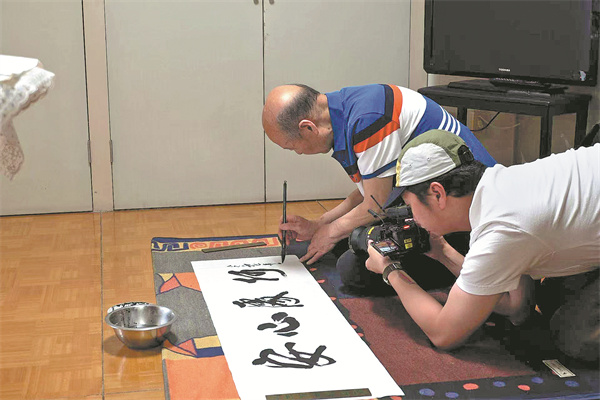Caught between two homelands
War orphans recall lives shaped by China and Japan in new documentary, Zheng Zheng reports in Shanghai.


In a modest apartment in Tokyo, 80-year-old Narihiko Kimura dips his brush into black ink and writes graceful characters across a sheet of rice paper. The quiet rhythm of his hand belies the emotion beneath. As he writes, his fluent northeastern Chinese dialect fills the room with memories of a childhood not spent in Japan, but in China's Jilin province, where he was left as a newborn during Japan's wartime occupation.
"My Chinese mother, Xu Suzhen, lost all her teeth before she turned 40, because she would chew scorching hot sorghum to feed me since she couldn't produce milk when she adopted me," Kimura says, his voice trembling. "I once vowed that when I grew up, I would buy her dentures. But she passed away at just 52. This unfulfilled promise remains my lifelong regret."
Kimura is one of thousands of Japanese children left behind in China after Japan's surrender in 1945. Their lives and memories now form the heart of a new documentary, Journey Home, produced to mark the 80th anniversary of victory in the Chinese People's War of Resistance Against Japanese Aggression (1931-45) and the World Anti-Fascist War.




































